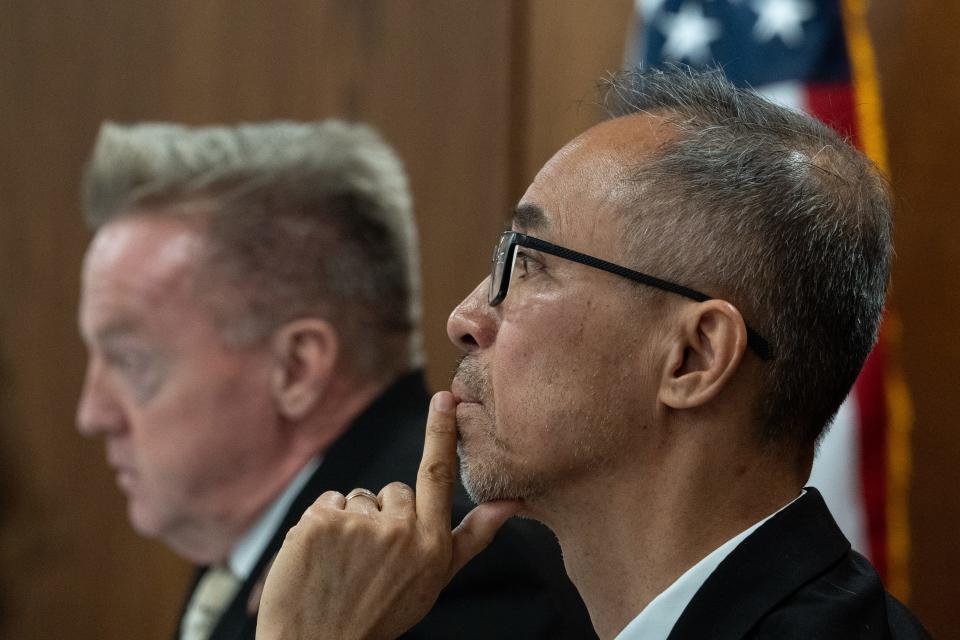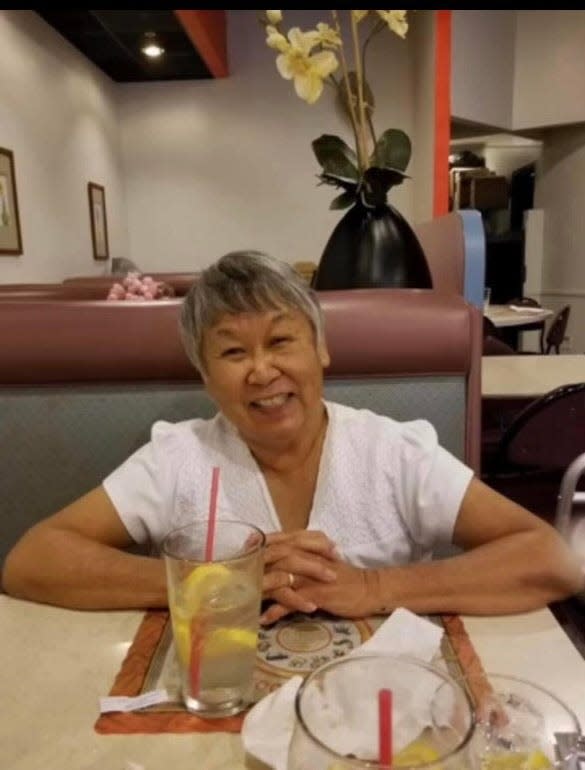Major reforms for assisted living blocked at Arizona Capitol, despite overwhelming lawmaker support
A proposed change in state law to require assisted living facilities to report resident altercations to the state Health Department and allow residents to have cameras in their rooms appears doomed at the Arizona Capitol, despite overwhelming support.
The bill could have helped regulators and police determine how residents get hurt. Mesa police recently released body camera footage to The Arizona Republic showing the chaotic aftermath of multiple resident injuries at one facility. Officers tried to interview terrified residents and make sense of conflicting employee accounts.
The measure, sponsored by Rep. Quang Nguyen, R-Prescott Valley, passed the Arizona House of Representatives 49-10 last month. But Sen. T.J. Shope, R-Coolidge and chair of the Senate Health and Human Services Committee, decided not to consider it in his committee. That leaves House Bill 2653 with no avenue to advance.
At an Alzheimer's Association event in February, Shope extolled the virtues of supporting better care for people with dementia. He talked up a bill he'd sponsor to reform the system.
"This horrible disease knows no political affiliation, knows no boundary of thought as far as your politics go but it can have an impact on everybody," he said at the event.
That bill never materialized. He told The Republic he'd instead support a bill sponsored by Rep. Tim Dunn, R-Yuma, which would make assisted living facilities pay stiffer fines for endangering residents and get special licenses if they offer "memory care." Shope scheduled that bill for a committee hearing Tuesday.

Shope did not respond to multiple requests for comment as to why he wouldn't put Nguyen's bill on his committee's agenda.
The camera provisions in Nguyen's bill were a big sticking point for industry lobbyists.
David Voepel with the Arizona Health Care Association said his team was poised to negotiate and floated camera language that is moving through the Iowa legislature.
Unlike House Bill 2653, the bill in Iowa would explicitly allow for facility employees to witness when residents or their representatives give consent to install cameras. It would also establish a 30-day deadline for roommates to approve each other's camera installations and require a 30-day waiting period before installation, in case someone changes their mind.
Arizona's language would have allowed for roommates to have cameras removed at any point, however.
Arizona assisted living groups recently formed a public relations campaign to counter "negative perceptions of providers that appear in the lay media," launching a website called "Who Will Care?" to share positive news stories about senior living, according to McKnights Senior Living, a trade publication.
Dana Kennedy, AARP's Arizona Director, said Nguyen's bill was critical to changing the culture in assisted living facilities. Kennedy said it breaks her heart that families who testified for the bill — reliving some of their most painful moments hoping to make a difference — won't see their dreams realized.
"At least give us a vote," she said. "At least bring it to the floor and go on record and allow us to be able to bring people forward to testify and vote with your conscience. Instead, they're denying us a vote."
Both she and Nguyen said they will try again next year.
"It's a real shame you have a whole industry taking care of the elderly who don’t want to do anything with accountability," Nguyen said. "All the crimes and mishaps happening around these facilities and they’re not doing anything about it."
Representatives with LeadingAge, an association for nonprofit, long-term care facilities, have argued that allowing families to install cameras in their loved ones' rooms strips seniors of their dignity and that some employees would be uncomfortable being recorded all the time.
The organization's director did not return calls for comment.
Kennedy questioned the industry's motives, as a representative proposed an amendment to the bill that would render any footage inadmissible in lawsuits against facilities.
"Was this really about privacy or was this really about being afraid that something would get caught by a camera that would hold these facilities accountable for actions that were taken on their watch?" she said.
Police body camera footage shows chaos, confusion
Nguyen's bill offered solutions to senior living problems exposed by The Arizona Republic's investigative series "The Bitter End," which chronicled widespread injuries, violence and death within the state's assisted living facilities. Regulators have done little to hold facilities accountable.
Assisted living managers must either report resident injuries to Adult Protective Services, which keeps most of what it does secret from the public, or to police. Officers often try to piece together what happened to injured residents with conflicting or confusing resident testimonies or limited to no witnesses.
The result is little to no accountability.
That's what happened after one resident struck three others over several days at Heritage Village, a Mesa assisted living center with more state citations than any others.
Catch up: Arizona senior living center where resident killed roommate has had nearly 150 citations since
In April 2022, Mesa officers responded to a chaotic scene around midnight at the Heritage Village campus. A man stood barefoot at the front door of Building 3. The foyer was lit but the rest of the living room behind him was dark. The radio blared and a woman was screaming.
Employees at Heritage Village had locked themselves in the bathroom to hide from the man standing at the doorway, who told officers he was hearing voices.
Officers shut off the radio, but the woman continued screaming while they tried to figure out what happened. When an officer pointed a flashlight at one man in the common area, he tried to run. Trembling, he told the officers he was scared. His eyebrow was cut and bleeding.

An employee emerged from a hallway with a petrified woman in a periwinkle nightgown. Her lip was bleeding. Employees would later tell police that the man in the doorway attacked the woman and then intimidated them to the point that they fled to the bathroom with her.
One officer went to the room of the man who’d hurt the others. He found a woman in one of the beds, balled up under the covers, the blanket pulled up to her chin.
She had a black eye.
Both employees in the room seemed to disagree when the woman got the black eye, but one of them said it was two days prior. She said the same man who hurt the others had done it. They never reported it to police.
The officers didn't note it, either. The woman with the black eye was not included in the police report. The Republic learned of her while watching police body camera footage.
The Arizona Department of Health Services ― charged with investigating problems that endanger residents ― never heard about her or the other two victims for that matter. State law allowed the department to remain in the dark.
Nguyen's bill would have required a different outcome for that chaotic scene at Heritage Village. The management would have had to report it to the state Health Department, a provision the facility says it could support.
Additional cameras could have also helped the officers find out what the terrified man meant when he told them that "they locked (him) out in the cold."
Heritage Village already allows residents to have cameras in their private rooms but only if no roommates are present, according to the facility.
Private rooms are often more expensive than shared ones and are too expensive for some families.
Since 2022, Heritage Village has hired more employees, tightened security, extended shifts and contracted with an on-site medical clinic, according to the facility.
Nguyen said he wouldn't trust a caregiver who wouldn't work in front of a camera.
"The industry is pushing back because they’re up to no good, " he said.
Arizona Republic reporter Sahana Jayaraman contributed to this article.
Reach Caitlin McGlade at caitlin.mcglade@arizonarepublic.com. Follow her on X, formerly Twitter, @caitmcglade.
This article originally appeared on Arizona Republic: Major Arizona assisted living reform proposal blocked at state Capitol

